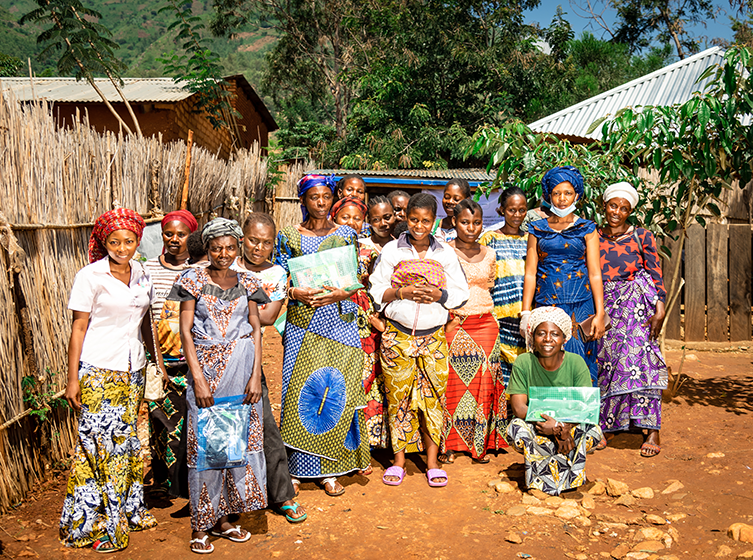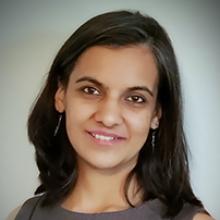Amplifying Women’s Voices to Change Gender Norms: Evidence from the Democratic Republic of the Congo

Change Agents in DRC advocate for women’s land rights and facilitate the provision of land titles to female farmers who had never owned land previously.
Image credit: Sighted Design 2022
In 2020, the Democratic Republic of the Congo (DRC) ranked 175th of 189 countries on both the Human Development Index and the Gender Inequality Index. Many Congolese women have suffered through decades of sexual violence, mobility restrictions, and extreme economic and social insecurity. The eastern region of the country has some of the highest rates of gender-based violence, owing to both ongoing armed conflict and deeply entrenched gender norms. Women throughout Eastern DRC have attested that their cultures uphold negative stereotypes about the intellect and value of women, deem power as an attribute of ideal masculinity, and tolerate certain forms of domestic violence.
The Change Agent Program
Through the AIR Equity Initiative, AIR has provided funding to generate and apply evidence on a community engagement program to change gendered practices and norms in Eastern DRC. AIR has partnered with Women for Women International (WfWI) to study the implementation and impact of WfWI’s Change Agent Program on gender-equitable practices and norms in the DRC.
The Change Agent Program trains selected women in advanced leadership and community advocacy to become “change agents” in their community. This strategy of supporting women to be at the forefront of dismantling barriers adds a unique participatory lens to identifying and addressing problematic gender norms by those directly impacted by such norms. The change agents develop a thematic understanding of the core issues that affect women’s lives and address problematic gendered practices through community outreach engaging male members, religious and political leaders, local officials, and other stakeholders.
The program moves beyond the traditional focus on individual woman’s self-improvement to a holistic, gender-transformative approach targeting the larger social structures in the community. Since 2017, WfWI has piloted the program in six countries, including the DRC, Rwanda, Iraq, Afghanistan, Kosovo, and Nigeria.
Mixed-Methods Study
Under this project, AIR is conducting a mixed-methods study to address the need for evidence on the program’s implementation and impact and effectively inform its expansion. In partnership with WfWI, AIR will measure program impacts on gender attitudes, women’s self-efficacy, access to social support, gendered practices, community norms, and interpersonal violence using a quasi-experimental evaluation. Using participatory qualitative research, the team will also uncover the perceived impacts and mechanisms of change within the context of local communities’ gender norms and attitudes.
Our approach has a strong focus on using interdisciplinary and participatory methods in every stage of the evaluation. We will embed our research in the program context by including voices of program implementers, change agents, and community members in the DRC to emphasize community-driven programming that can transform attitudes and practices and lead to lasting social change. The study will fill a critical need for evidence on the program’s implementation and outcomes to inform its scale-up and fill larger evidence gaps related to the mechanisms for gender-based structural change.
